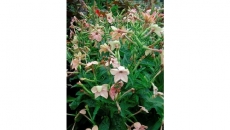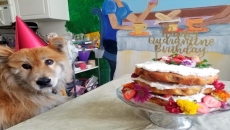Dosti is a children’s book on the partition of India & Pakistan. The protagonists of the book’s narrative, Manh the Mor and Chanh the Chakor, are two childhood best friends that fall prey to sudden separation, caused by the Partition.
As the world advances to new eras, facets of history are sometimes left untold and fade away in time. The richness of our culture and history can only be kept intact if we continue to pass down this knowledge to the coming generations. To keep these stories alive, the onus falls on our community to spark such conversations in the public sphere, stemming from our children. Taking on this leadership role, Steeven Toor has recently authored children’s book, Dosti, portraying the India-Pakistan partition.
A Fraser Health Authority Community Health Specialist by profession, Toor wanted to integrate content in a way that would peak interest in the minds of children. He recognizes that whatever one is stimulated by at a young age, will have an everlasting impact. The protagonists of the book’s narrative, Manh the Mor and Chanh the Chakor, are two childhood best friends that fall prey to sudden separation, caused by the Partition. The tone of the picture book is friendly and lighthearted, curated to appeal to young readers. The book is graced by colorful, heartwarming illustrations, skillfully put together by the talented Sukh Sidhu, who has been an important collaborator for the project.
When growing up, Toor recalls not having access to any South Asian literature, which became motivation for him to write. His goal is to encourage more creatives and young creators to deliver high-quality and well-produced content. Of course, the intention behind releasing Dosti extends beyond that. Having completed a Masters in Public Health from Queen’s University, Toor explains that he is well aware of the cyclical nature of intergenerational trauma on multiple generations, as part of his work in the science and research community.
He explains, “When something devastating happens to a particular generation, the impacts linger. Until today, indigenous communities are impacted by trauma inflicted by colonial settlers. For the South Asian community, I see an overlap under the umbrella of colonialism, with the British abruptly leaving India. I look at that era as a painful time in our system. Work needs to be done.” Toor himself is making significant strides in the area of work, as he has co-founded non-profit organization, Punjabi Resilience and Empowerment in Mental Health (PREM), to inspire a movement in mental health advocacy through a creative lens, striving for resilient and empowered communities.
During the community outreach phase of his early writing, Toor found that the community’s adults and elders have mostly internalized the Partition experience; it is not commonly spoken about. The writer of the book’s foreword, Jaswant Singh Cheema, is a survivor. He shares that his involvement with the book marks the first time he spoke about the Partition since it happened, not even talking about it with his own family. Cheema’s foreword carries a message to the next generation, simply asking them to find love for another and foster unity.
Given the endless wisdom they have to offer, Toor urges younger generations to learn from elders while they’re with us. According to him, as our generations continue to thrive, it is important that we utilize our elders’ knowledge. After all, we come from a tradition of talking to our elders.
For the book, Toor reached out to many community members and grandparents to capture the finest details and integrate them into the writing and illustrations. Taking flight during the pandemic, the project underwent unique challenges. In-person conversations were no longer an option, so discussions happened propelled by Zoom and screen-sharing tools. “In creative projects, drive and motivation are key. With the project spanning 4 years, it was easy to feel drained. Seeing the finish line was especially difficult during the pandemic, but the collaboration from friends and family has been tremendous support.”
Now that the book has come together, the responsibility falls on the community to enable such conversations to take in public spaces, with parents and educators playing important roles. In a world where we are becoming overwhelmed by technology, it is important to encourage children to read books, especially physical versions. Toor intentionally made the conscious decision to not release a digital version, in an effort to reduce children’s digital media consumption. He strongly believes that community programming, book clubs, and reading sessions create a sense of culture, enabling young writers to create content.
An avid reader of books as a child, Toor credits his reading habits for advanced comprehension throughout his schooling years, and eventual transition to authorship. Although Dosti is available for sale on Amazon, Toor aspires to have it available in libraries to evoke the same love for reading in children, while increasing accessibility of South Asian literature.
In fact, Toor’s thought-process behind registering his own publishing house, Kalam Creations was motivated by the desire and passion to create something for our own community. His aim is to address issues like the lack of South Asian representation in mainstream media. The publishing house is an outlet not just for himself, but others too. He highlights, “From a grassroots perspective, it is challenging. We are building the plane as we are flying it. That said, we are laying the groundwork for future work.” Undoubtedly, Toor has a noble vision of giving voice to the talent in our community, instill in our future generations an appreciation for our history, and spread the love for South Asian literature. A literary catalyst, Dosti is a step in the right direction, carrying in its pages the powerful potential to inform, educate and empower.
Photography: Fahad Photo






